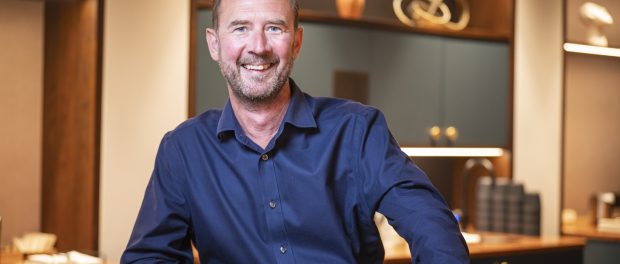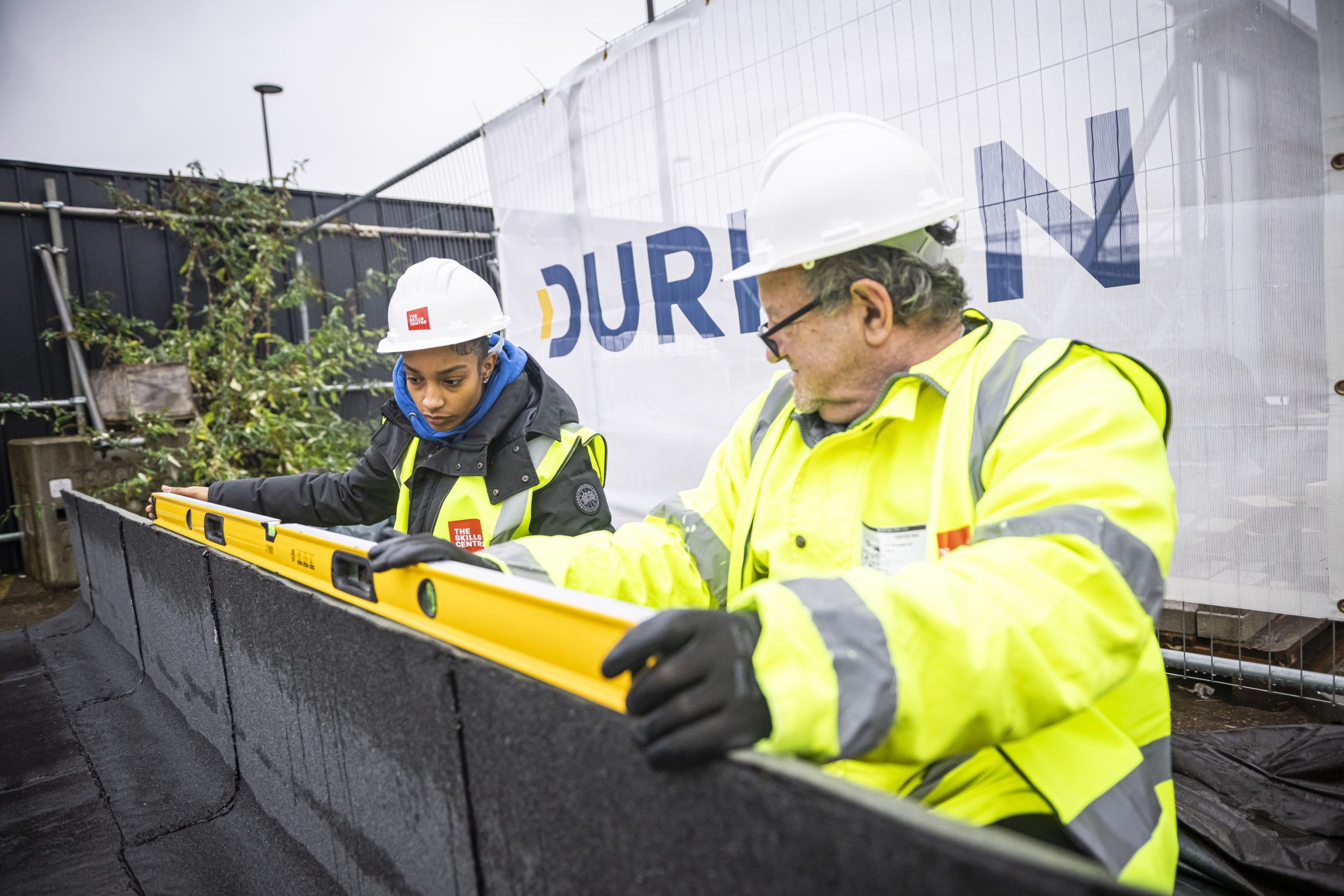In Conversation with Dan Germann: Delivering Regeneration at Scale with Durkan Regen
 Dan Germann Durkan Regen MD.
Dan Germann Durkan Regen MD.
At a pivotal moment for both the UK housing sector and the business itself, Durkan is charting a bold new course.
The launch of Durkan Regen earlier this year marks a strategic turning point—refocusing the company’s decades-long expertise in public sector housing on the urgent and growing demand for regeneration. With a clear ambition to deliver safer, warmer and future-proofed homes, Durkan Regen brings together a comprehensive offer that spans everything from compliance and retrofit to major asset upgrades and decarbonisation.
We spoke to Dan Germann, Managing Director at Durkan Regen, about his ambitious growth plans and vision for the company. With extensive experience in construction and housing, Dan brings a sharp focus to the evolving regeneration landscape—particularly the complex funding challenges facing housing associations and local authorities, and the importance of specialist skills in upgrading ageing stock. Under his leadership, Durkan Regen is combining the agility of a mid-sized player with the strength of a wider group offer to drive real value for clients. From building long-term public-private partnerships to delivering social value through skills bootcamps and community investment, Dan shares how Durkan Regen is aiming to play a key role in shaping the future of UK housing.
- Can you share your vision for the company’s future and your growth plan over the next few years?
We’re at a really important juncture – both for the housing sector as a whole and for the Durkan business. The launch of Durkan Regen earlier this year was a significant milestone and has enabled us to refocus our work on the areas where we are seeing market demand, supporting housing associations and local authorities in creating safe, warm and decent homes.
The new Regen dedicated business brings together our full regeneration offer for the first time, building on our 50+ years’ experience working with the public sector. We’re focused both on maximising work through existing partnerships with clients and targeting key new long-term frameworks to drive growth.
Durkan Regen also gives us the platform we need to grow our market and explore opportunities to diversify into adjacent and complementary sectors, such as for-profit housing associations, heritage regeneration and build to rent housing providers. In the long term, our aim is to achieve a target revenue of £100m and increase our market share close to 5%, as part of our overall strategy to deliver homes that are fit for the future.
- Regeneration is a key focus for Durkan Regen. How do you see the landscape of regeneration evolving in the coming years, especially in light of current market demands and changing regulations?
New housing is desperately needed to meet growing demand, but the sector must also regenerate its existing stock at scale to bring homes up to modern standards and tackle persistent challenges such as damp and mould. The demand for urgent regeneration of existing housing stock is significant, as the sector prepares for a number of legislation changes against a backdrop of the ongoing consultation on a reformed decent homes standard.
The importance of this work has been underscored by the government’s commitment in its spending review to invest more in building and regenerating social homes. This is being delivered through a programme of change that the government calls a Decade of National Renewal. The programme promises to bring investment, stability and new ways of working with the private sector to make the ambition of delivering more homes a reality.
All this is positive but the scale of the challenge ahead is significant. An estimated 3.5 million homes failed to meet the Decent Homes Standard in 2022/23. And there are now 1.3 million households on the social housing waiting list. It has been reported that nearly half of the existing social housing stock would be “not decent” under the proposed new standard.
The sector is in a period of flux, with changes to both funding and delivery afoot. It’s critical that public and private sectors work hand in hand to navigate these changes and ensure a real focus on quality as well as speed of delivery.
- Housing Associations (HAs) and Local Authorities (LAs) are facing significant funding challenges. What strategies can Durkan Regen implement to help these organisations meet the increasing demand for housing upgrades and stock improvements?
The real value of our offer comes from our integrated and holistic approach. The promised injection of new funding for the sector is positive news but, in my view, funding challenges can often drive a “race to the bottom” in procurement. Public and private sectors must work together to allow housing associations and local authorities to refocus on value, quality and longevity.
But this isn’t easily achieved. Current access to funding is ringfenced to certain elements of retrofit and regeneration work. This fragmented and elemental approach often results in missed opportunities to take a more holistic, long term and joined up approach to regenerating housing stock, driving reaction over prevention.
Longer term frameworks can deliver multiple benefits including far reaching social value opportunities and benefits that are not possible when operating through single competitive tenders for different parcels of work.
Ultimately, a more streamlined and strategic approach to grants and funding is needed, so that local authorities and housing associations can leverage the very best value from genuine strategic public private partnerships.
- As a company with over 50 years of experience, how does Durkan Regen’s heritage and expertise position it to handle regulatory changes and meet the demands for specialized skills in public sector housing regeneration?
Across five decades, we’ve worked with almost every local authority and housing association in Greater London. This means we have a really solid base of experience and knowledge on which to draw, while remaining agile and flexible.
The breadth of our offer is also key. Our clients need the full range of skills to upgrade homes, and we can deliver them in a coordinated way that helps clients get the most out of the limited resources they have. Thanks to the wider Group and our Durkan Homes business, we bring a rounded view. We understand the whole cycle, and we understand the perspective of the person living in that home too, so we really do bring a holistic approach to our work. Furthermore, the back office skills we have across the group around design, innovation, QA and technology, bring a diverse skill set into the approach we can adopt in regeneration solutions for our clients.
- Durkan Regen operates in a space where smaller to medium-sized players can have a significant impact. How do you think the agility of companies like Durkan Regen can support HAs and LAs through the complex challenges of regeneration?
In the last few weeks alone, there’s been a wealth of funding and policy announcements coming out of Government. Things continue to change and evolve. Our size means we are agile and fleet of foot and can support housing associations and local authorities in responding quickly to market developments, drawing on more than fifty years of experience and knowledge in the sector.
The longevity of Durkan’s business, understanding of the market, wider offer across the group, and strength of balance sheet, coupled with the ownership structure, means we can operate with agility and make fast paced decisions, but with the professionalism and integrity of a long term business operating at scale.
- The challenge of upgrading homes at scale is a major concern. What do you think are the most critical factors in tackling this challenge, and how is Durkan Regen contributing to solving it?
A vital part of regenerating and upgrading social housing at scale is a coordinated strategic approach across funding, procurement and delivery through the public private partnership model. Fragmentation leads to inefficiency. Furthermore, reactive maintenance increases spend, is inefficient, and doesn’t address the primary need to fully upgrade homes to ensure quality and longevity.
For our part, we help by offering a full-service regeneration model that spans asset regeneration, planned maintenance, compliance services including damp and mould, fire remediation, and general repairs, as well as retrofit, decarbonisation and cladding remediation. Our size, deep expertise and experience, combined with this comprehensive offer, allow us to maximise the value of our clients’ investments.
To give an example of how the public private partnership approach can work successfully, we are working with L&Q to upgrade its aging Victorian housing stock at scale. We’re taking a whole home approach, providing a full range of services to transform the homes which includes utilising new internal wall insulation systems. This holistic approach means we can truly transform homes to a high standard where they are unlikely to need further work for upwards of 25 years.
- Regeneration goes beyond construction and involves creating long-term value for communities. Can you tell us more about the social value initiatives Durkan Regen is involved in, particularly the skills bootcamps and other programs to support local communities?
Delivering social value is embedded in all our partnerships with clients, and we are proud to have a brilliant inhouse team that coordinates all our work, unlocking real opportunities for the communities around our projects.
Through our long-term partnerships, we’re investing significant amounts to help communities thrive. For example, through one framework we are set to invest over £2.4 million in social value initiatives by 2026. This includes employment programmes, such as skills bootcamps, that introduce local people to high quality training supported by our supply chain and community partners. Similarly, our bootcamps with the GLA have also been a huge success, and have given us a blueprint for success that we are sharing with other contractors. These initiatives not only support young people into rewarding construction careers, but also help us address the skills shortage in the regeneration sector.
One of our Resident Liaison Officers, for example, lived in one of the blocks we were regenerating and moved into full time employment with us, thanks to a careers event organised with a housing provider. It’s a brilliant story and one we want to keep recreating. It’s also all part of that positive and holistic regeneration cycle.
- Looking at the future, what do you think the role of regeneration companies like Durkan Regen will be in addressing housing needs and improving the overall quality of life for people in the UK?
Companies like Durkan Regen that offer specialist and expert regeneration services remain vital to modernising social housing. Building new homes is important, but so is upgrading and future proofing existing social homes across the UK. People rely on these properties, and they deserve homes that are safe, warm and decent.
We work with residents on a day-to-day basis, and our RLO team often volunteer time to help residents with job searches and employability training. So, we know first-hand how life changing it can be for people to have their homes fully refurbished. Being able to change people’s lives in this way is undoubtedly one of the most rewarding parts of the job we do.
This focus on people and quality remains central as we look to scale up our work with local authorities and housing associations, and support them in maximising resources and making the most of new funding. There’s a long road ahead but I, for one, feel very positive about the scale of opportunity here and about what can be achieved through genuine partnership and collaboration, improving homes and also communities.
For more information, please visit: https://www.durkanregen.co.uk/


